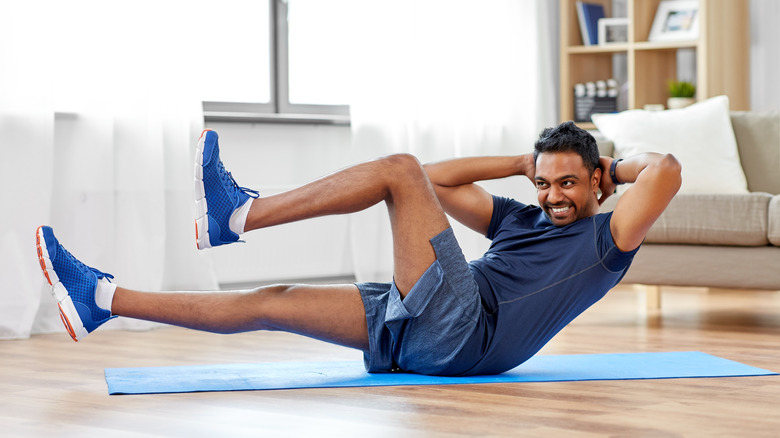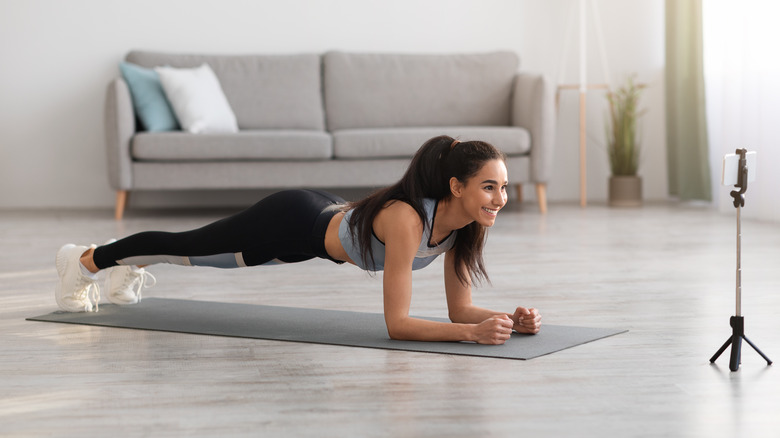Why It's Important To Engage Your Core During Workouts
Most people who go to the gym or attend fitness classes have heard the phrase "engage your core" at least once before, but not everyone knows what it means or how to do it. Although it may seem like a somewhat confusing task, engaging your core can actually be a pretty important and beneficial part of your workout routine. That's because it can help step up your fitness game by improving your form and movement.
According to experts at Health, core engagement isn't as scary as it sounds. It doesn't involve crushing your muscles or anything extreme like that, but it should feel like your core muscles are tightening and bracing themselves. Overall, engaging your core correctly can help support your skeleton, increase your strength and coordination, and reduce your risk of injury. "No matter what exercise you're doing, the core is a fundamental component," Marissa T. Schaeffer, a physical therapist and owner of Marissa T Schaeffer Physical Therapy told Health.
How to engage your core
You can engage your core by performing several core-strengthening exercises that aim to brace and tighten your abdominal muscles. According to Healthline, some basic core exercises include the abdominal draw, the plank, and the dead bug. The abdominal draw involves lying on your back with your knees bent and pulling your stomach in toward your spine while exhaling. You should hold this position for five to 10 seconds. During the exercise, your back should remain flat against the floor.
The plank, on the other hand, involves starting in a regular pushup position and drawing your belly button to your spine. Hold this position for 20 to 60 seconds, and make sure you keep your glutes aligned with the rest of your body throughout each set.
Meanwhile, you can perform the dead bug by starting on your back with your knees bent and tightening your core muscles. Keeping your back flat against the floor, lift your legs, so your knees are at a 90-degree angle. Tap one foot on the floor at a time and return it to the 90-degree angle. If you want to make the exercise even harder, you can extend your arms back over your head and lift the one opposite to the leg you're moving.


